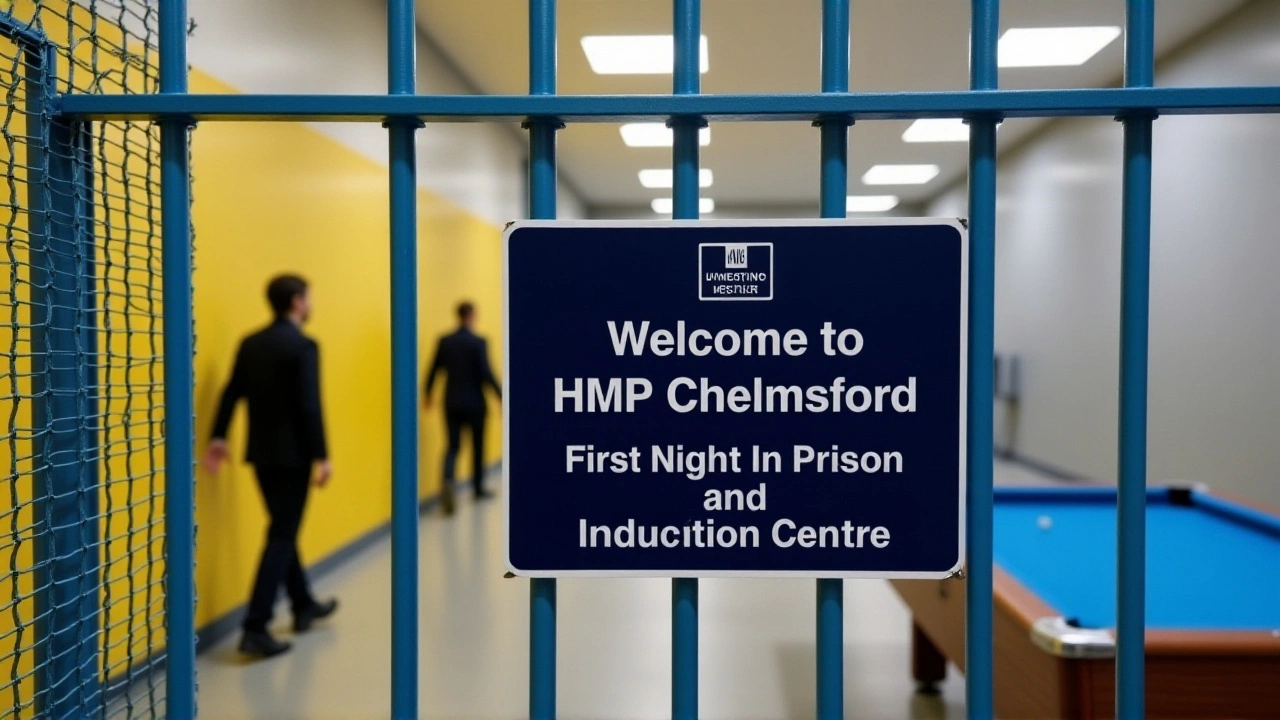
When Hadush Gerberslasie Kebatu, an asylum seeker from Ethiopia was accidentally let out of HMP Chelmsford on Friday, 24 October 2025, the nation’s immigration debate ignited like a dry tinder‑storm. Kebatu, who had been serving a 12‑month sentence for sexually assaulting a 14‑year‑old girl and a woman in Epping, Essex, vanished from the prison’s records and was spotted boarding a train bound for London later that day.
Background: From boat arrival to courtroom
Kebatu arrived on English shores in early July 2025, landing in a small boat off the Kent coast. Within weeks he was arrested after an alleged attempt to kiss a teenager in Epping’s high street, an incident that quickly turned violent when a passer‑by intervened and was also assaulted. The court in September handed Kebatu five convictions – two counts of sexual assault, attempted sexual assault, inciting a minor to sexual activity and harassment without violence.
The Bell Hotel, a former boutique lodging turned migrant‑housing site about 20 miles north of London, became the backdrop for his pre‑trial detention. The hotel’s name resurfaced in the media each time a protest marched past its doors, pitting anti‑asylum‑seeker groups against anti‑racist demonstrators from Stand up to Racism.
How the release went wrong
According to prison officials, Kebatu’s release was supposed to be a transfer to an immigration detention centre for deportation proceedings. Instead, a clerical error led officers to sign off a release form and hand the man a modest £76 to cover travel expenses. Aaron Stow, president of the Criminal Justice Workers’ Union, called the mishap “a profound failure of duty,” adding that it betrayed both victims and the public’s trust.
Essex Police later confirmed they saw Kebatu stepping onto a train at Chelmsford station. The Metropolitan Police, taking charge of the search on Saturday, 25 October, reported CCTV footage of him alighting at Stratford station. A spokesperson said there was “a high degree of confidence that Kebatu is likely still in the London area” and that locating him was “a top priority.”
Political fireworks
Justice Secretary David Lammy announced on Twitter that Kebatu was “at large” and urged the public to stay vigilant. Prime Minister Keir Starmer described the accidental release as “totally unacceptable,” echoing the outrage felt across party lines.
Foreign Secretary Yvette Cooper seized the moment to reiterate the government’s plan to shut down the makeshift hotel system that, at its peak in 2023, housed more than 400 asylum‑seeker families at a cost of roughly £9 million per day. “We share the view of communities nationwide that these hotels must close,” she said, adding that a “structured and sustainable plan” was needed.
On the other side of the aisle, Reform UK leader Nigel Farage blasted the incident on his X account, calling Britain “broken” and demanding stricter immigration enforcement.

Manhunt details and public safety measures
Police have deployed officers from both forces along the train network, checking stations from Stratford to Liverpool Street. Residents in the boroughs of Newham and Waltham Forest have been asked to report any sightings. The Metropolitan Police has also set up a dedicated hotline – 0800 555 1234 – for tips.
- 24 Oct 2025: Kebatu released from HMP Chelmsford.
- 25 Oct 2025 (morning): Essex Police confirm train boarding.
- 25 Oct 2025 (mid‑day): Metropolitan Police takes over operation.
- 25 Oct 2025 (evening): CCTV review expands to all London‑area stations.
Impact on immigration policy and public opinion
The incident has reignited a simmering debate over the UK’s reliance on hotels to house asylum seekers while their claims are processed. Critics argue the model “creates a breeding ground for crime,” while advocates point to the lack of affordable housing and the need for humane temporary solutions.
Data from the Home Office shows that, as of September 2025, roughly 12 % of the asylum‑seeker population was still in hotel accommodation, despite a government pledge to reduce that figure by 2026. The backlash from Kebatu’s case may accelerate legislative reviews, with a draft amendment to the Immigration and Asylum Act slated for debate in the House of Commons early next year.

What’s next?
If Kebatu is apprehended, he will likely be re‑incarcerated and placed under immediate deportation orders. Legal experts warn that the error could expose the Ministry of Justice to costly lawsuits from victims and their families.
Meanwhile, local councils in Essex and Greater London are scrambling to bolster security around former hotel sites, hoping to prevent any further incidents that could fuel community tensions. Watchdog groups are also demanding an independent inquiry into prison administration procedures.
Frequently Asked Questions
How does this incident affect asylum‑seeker families living in hotels?
The mistake highlights systemic flaws in the temporary‑housing model, prompting calls for faster relocation to community‑based accommodations. Families may face tighter scrutiny and possible early transfers to detention centres, depending on forthcoming policy changes.
What triggered the mistaken release from HMP Chelmsford?
A clerical error during the hand‑over process led prison staff to sign the wrong paperwork, mistakenly marking Kebatu as eligible for release. He was given £76 for travel, a sum that was meant for a scheduled transfer, not freedom.
Who is leading the police search and what resources are being used?
The Metropolitan Police took command on 25 October, coordinating with Essex Police and using CCTV across the rail network, foot patrols at key stations, and a public tip line. Additional officers have been deployed to high‑traffic zones in East London.
What legal consequences could Kebatu face if caught?
Beyond completing his original sentence, he would likely be placed in immigration detention pending deportation. The error may also open the door to civil actions from the victims, potentially resulting in compensation claims for the trauma endured.
Will this case influence future UK immigration legislation?
Parliamentarians have already cited the incident as evidence for tightening oversight of hotel‑based housing and improving prison‑release protocols. A draft amendment to the Immigration and Asylum Act is expected to be debated early next year, aiming to reduce reliance on hotel accommodation.



